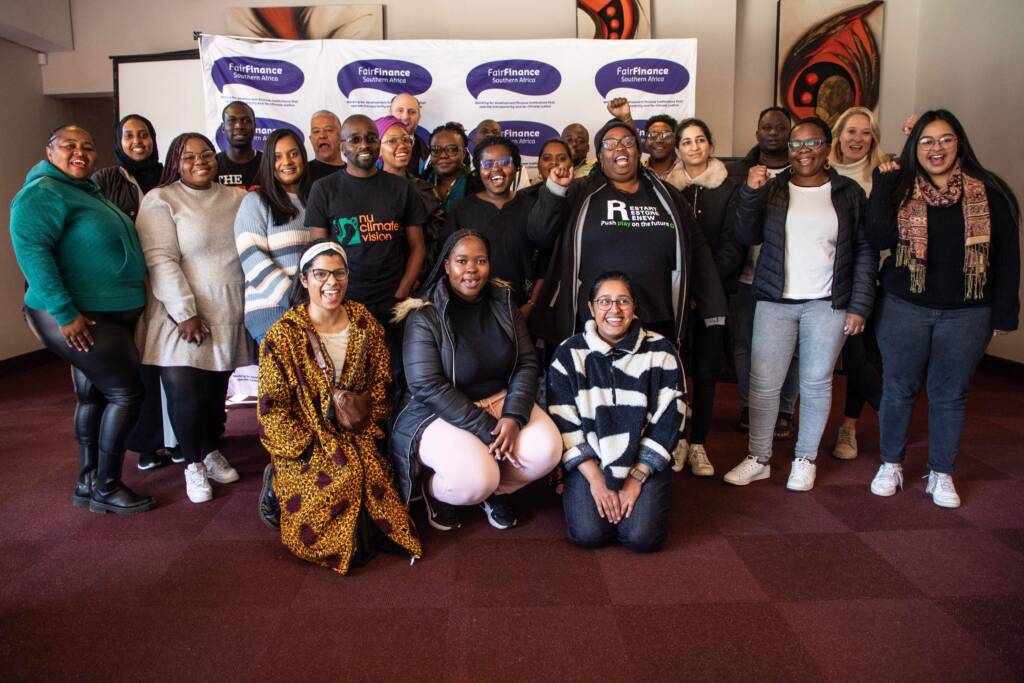We know the climate crisis is here, and we know action needs to be taken. But what will all of this cost? The topic of climate finance is a heated one (yes, pun intended). How much do we need? Who will pay the money? What will the money be spent on? The Fair Finance Coalition of Southern Africa spent three days delving into these topics with partners at the first-ever Fair Finance School. Here’s what we learnt when we broke down climate finance and looked at the deeper role it plays.
The Fair Finance Coalition of Southern Africa was officially launched in early 2022 after years of advocacy work demanding just and sustainable investments by Development Finance Institutions. This work is crucial as climate finance for addressing the climate crisis becomes more profound. Public finance institutions have an influential role to play in managing these resources. However, the world of finance is complicated! And the more we call for transparency in financial flows, the more murky the flow seems to get.
The Fair Finance School took place at the Observatory in Johannesburg from 6 – 8 July 2023. The setting lent itself to some “greenfield thinking” but also important conversations on climate financial deals, public finance institutions, the role of power, colonisation and ownership. Participants from across Africa attended the school to learn more about climate finance concepts, strategies for acting on finance and ways of engaging with development institutions.

The aim of the school was to share knowledge on macro climate finance issues and build capacity for local advocacy for social and environmental justice with an appreciation for positionality. As we explored climate finance, we questioned the role of finance, how it shapes our world and continues to mould dynamics between the global north and global south and how these relations affect international climate response. We looked at the role of financial institutions and their commitment to fairness, justice and development. We used film, storytelling, meditation and drama to understand these topics. Practically, we focused on campaigning and adopted new skills to amplify your campaign and your voice using media as an advocacy tool.
At the end of the three days, we felt ready to advocate for justice, human rights and dignity in climate finance to promote equality in the climate response. Participants showcased creative campaign ideas to hold public finance institutions and climate financiers accountable to fairer finance, transparency and justice!
Where to next? We’ll only be able to tell the full impact of the school over the next few months as the content finds itself in different contexts. But we hope to have created a pan-African community committed to working towards fair finance. We’ve been able to secure resources for further schools to be recreated across African countries. We are also working on an online curriculum that will be publicly accessible to other climate finance activists and the public keen to discover the importance of climate finance in our response to climate change. Stay tuned for more updates.
If you want to learn more about our climate finance campaign, sign-up for our Climate Finance Campaign here.
The Fair Finance School is a crucial initiative to empower civil society and activists to engage responsibly with financial matters and advocate for social and environmental justice. By fostering a shared understanding of financial deals, institutions, and campaigning strategies, the school encourages participants to actively contribute to the broader movement for fair and sustainable finance. Through its Pan-African approach and focus on justice, the Fair Finance School seeks to bridge the gap between financial institutions and the people they affect, ultimately striving for a more equitable and informed financial landscape in South Africa and Africa.
